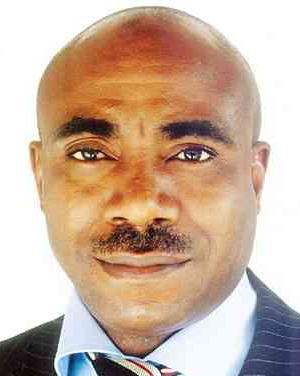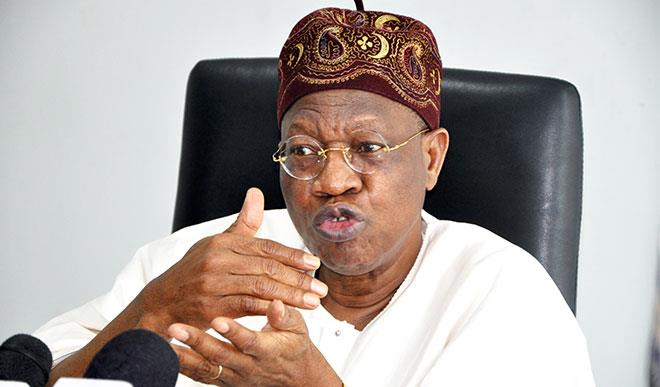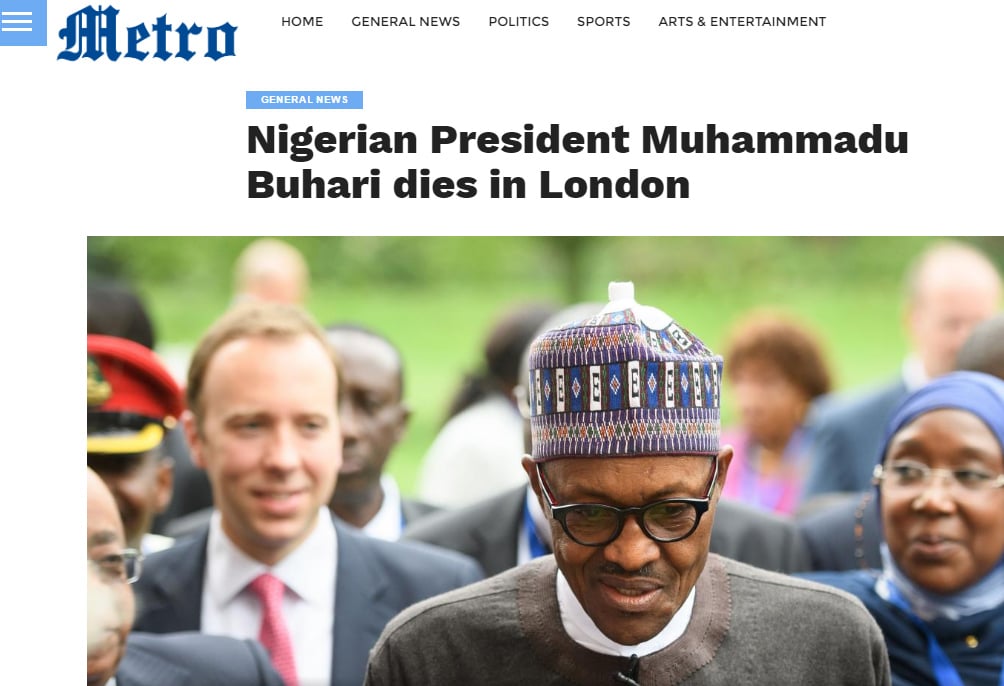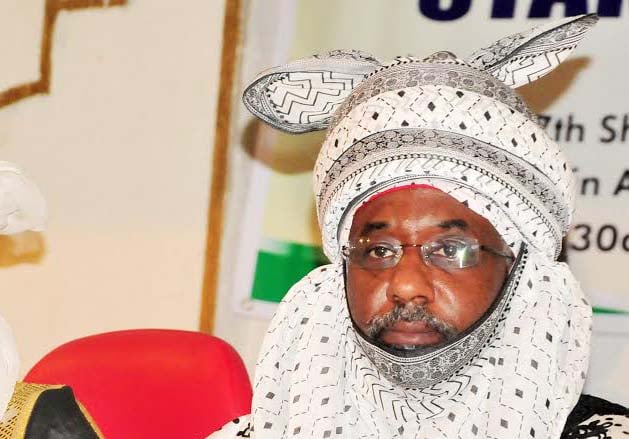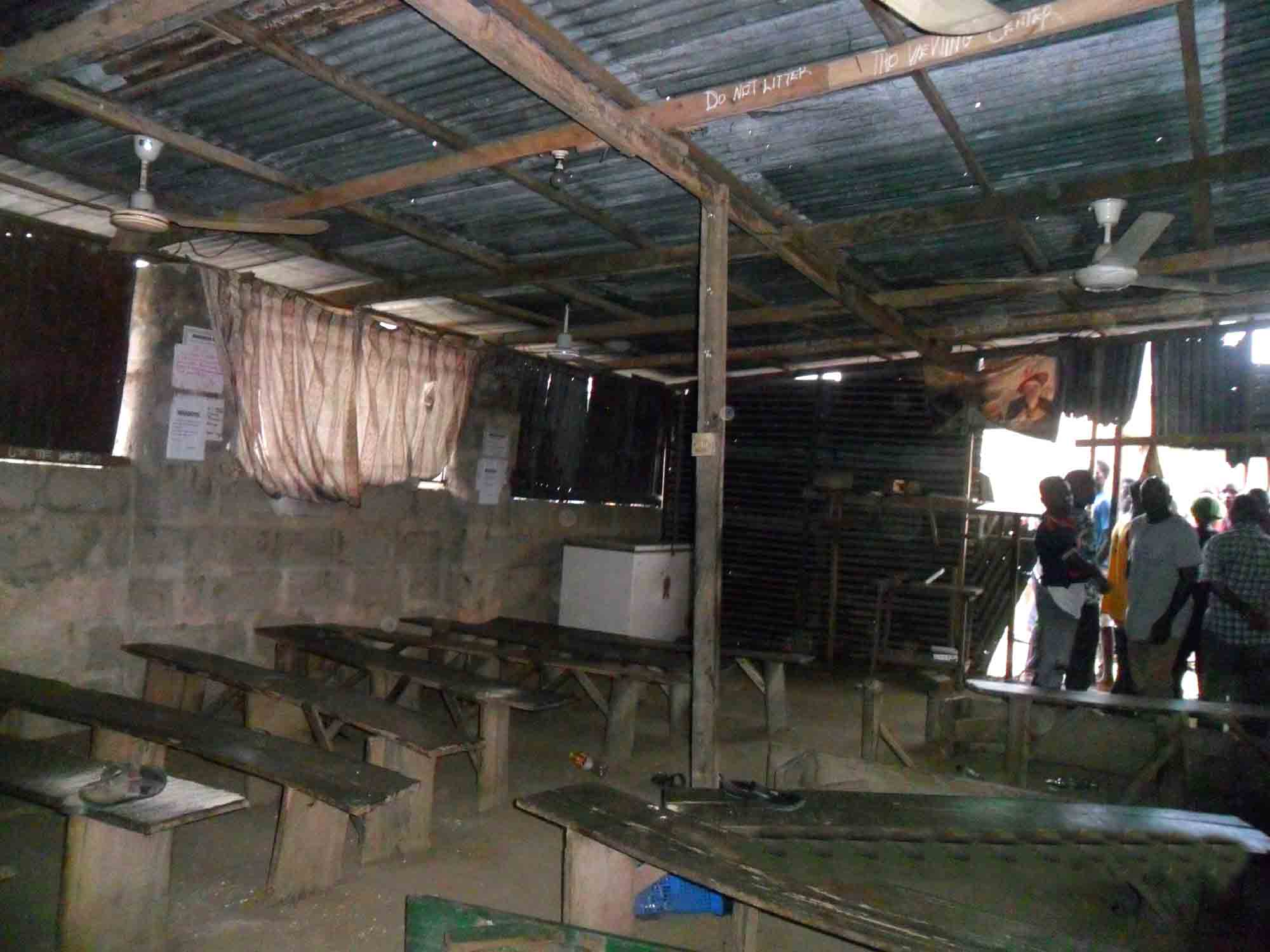Since last week, the National Intelligence Agency (NIA), the foreign intelligence arm of our nation’s intelligence network, has been in the news for the most annoying, baffling and wrong reasons. The shocking discovery of $43m( about N13bn) by the Economic and Financial Crimes Commission (EFFC) in a plush Osborne Ikoyi flat, allegedly hidden by the NIA for reported covert operations, going the admission of the now suspended Director-General of the agency, Ambassador Ayo Oke, raises several questions which a very serious government should not gloss over and sweep under the carpet.
As reported in the media, a visibly agitated DG of NIA in a spirited efforts to save the hidden funds from being seized by the EFCC contacted the acting Chairman of the anti-graft agency, Ibrahim Magu to halt the operation, claiming that the cash in question actually belongs to the NIA and was duly approved for covert intelligence operations by former President Goodluck Jonathan. Curiously, the NIA like its United States counterpart, the Central Intelligence Agency, CIA, is charged with the responsible of handling foreign intelligence operations and not domestic operations while the Department of State Security Services handles domestic intelligence operations. The DSS is modeled after the US FBI and the British M15 just as the NIA is patterned after the British’s M16. In plain language, the NIA acts as a foreign mole and spy as well as undertake foreign intelligence operations for the nation.
Therefore, if the claim by Ambassador Oke, the now suspended DG of NIA is anything to go, then it further illustrates the very grave mess that characterized the entire security gamut of our nation during the last administration. Ambassador Oke was reportedly nominated to Jonathan by a former President for the position of DG of NIA on account of his records in the foreign service.
But to say that the conduct of the suspended DG of NIA is indecent in this whole N13billion saga is to state the obvious. Since the NIA which began as a Research department in the Ministry of Foreign Affairs and had Sanusi’s father, a very decent and disciplined Officer as its pioneer head, gained independence from the MFA, this is the very first time that such a messy issue would become public knowledge due largely to the ineffectiveness and poor judgment of its suspended leadership. Unlike the DSS( formerly Nigeria’s National Security Organization-NSO) which started off with General Abdullahi Mohammed, former Chief of Staff to former President Olusegun Obasanjo, as its pioneer DG, and has become known as the security agency responsible for domestic intelligence operations, not many Nigerians actually are aware of the sensitive and sometimes delicate responsibilities of the NIA. The job is purely to act as mole on foreign institutions and citizens and not to delve into domestic intelligence operations.
Advertisement
The seeming disturbing involvement of NIA in domestic covert operations without the knowledge of the office of the National Security Adviser, (ONSA) which, like in the US should ordinarily co-ordinate the security and intelligence agencies to avoid inter-agency rivalry and ensure inter-agency effective functioning , is very worrisome and most disturbing. A situation in which an NIA Director-General can lay claim to such huge funds that are not known to the office of the NSA and the Central bank of Nigeria (CBN) poses very grave danger to our nation’s democratic system. The puzzling question is: How did the NIA, going by the admission of its DG, come by this huge funds? This naturally brings us to the real kernel of the issue: National Security!
Obviously, there has been a very limited understanding of the role or concept of national security and role of the Office of the National Security Adviser in Nigeria. Early in the life of the current administration, when President Muhammadu Buhari appointed Major-Gen Monguno (PhD), a retired Army General and fine gentleman with graduate degrees in International Relations as the new National Security Adviser, one had thought that the ONSA would therefore take charge of co-ordinating the security and intelligence agencies to avoid this disgraceful scenario as illustrated by the NIA $43m saga. One had thought that the ONSA would become much more robust than as it presently is. Besides, since Nigeria embraced the US presidential system of government with its fine attributes, there is need to modernize the entire intelligence and security system in line with the US model if we are really to make serious impact and earn a distinguished pride of place in the global community.
This raises the question of what really constitutes National Security? What is the role of the ONSA ? What should be the appropriate background and credentials of a competent man or woman that would really discharge the functions of the functions of that office creditably? What the best examples we can draw from?
Advertisement
The National Security Adviser (formally called Assistant to President on national security affairs) in the United States of America, whose presidential system the Nigerian presidential system is modeled after, co-ordinates defense, foreign affairs, international economic policy, and intelligence. Thus, ordinarily, the DG of NIA ought to report to the President through the ONSA. This is because this job description of ONSA reflects the recognition that national security extends beyond military security and encompasses foreign affairs, international economic policy and increasingly technological policy.
In the U.S. the appointment of persons with military background has been the exception rather than the rule: the military persons that have occupied the NSA position were General Collin Powell under President Ronald Reagan, Brent Scowcroft under President Gerald Ford and later President Bush senior, James Jones who served for a year in the first term of President Barack Obama and now Lt-General H. R. McMaster the current National Security Adviser to President Donald Trump. Gen McMaster, who holds a PhD in History from the University of North Carolina and author of an interestingly powerful book entitled, ‘’Dereliction of Duty’’, which focuses on why the US lost the Vietnam War, is an intellectually engaging personality who has taken up the job with great zeal and the right demeanor and carriage .
In the main, appointees to the NSA position in the U.S. have been very distinguished academics and diplomats ( George McBundy under President Kennedy, Walter Rostow under President Johnson, Kissinger under President Nixon, Brzezinski under President Carter, Condolezza Rice under President Bush junior, and Susan Rice in the second term of President Obama). For a start, McGeorge Bundy, who had a very distinguished career as an American Foreign Policy academic and served as National Security Adviser under President John F. Kennedy was a Professor of Government and the youngest Dean of the Faculty of Arts and Sciences as at 1953 at Harvard University. Also, Rostow who served as National Security Adviser under Lyndon Johnsons had served as a professor and distinguished academics at Cambridge University as the Pitt Professor of American History and Institutions and economic History at the famous Massachusetts Institute of Technology. His earth-shaking book,, The Stages of Economic Growth, which he published in 1960, has been quite contentious. The same background goes for Henry Kissinger who was NSA under Presidents Richard Nixon and Gerald Ford. An American Diplomat and Political Scientist of note, he was a Professor of Government and Foreign Relations at Harvard, where he took his PhD, when he was appointed into Nixon’s administration as NSA.
Zbigniew Brzezinski, a distinguished academics who was NSA under President Jimmy Carter, set a national standard and made a great impact in US National security policy direction. He has since returned to Johns Hopkins University where he is currently Robert E, Osgood Professor of American Foreign Policy at the School of Advanced International Studies (SAIS) Centre for Strategic and International Studies. Condolezza Rice, who was NSA under Bush Junior, is a Professor of Political science and a Diplomat. After her service, she has since returned to Stanford University as a political science professor and the Thomas and Barbara Stephenson Senior Fellow on Public Policy at the Hoover Institution. Since 2010, she has been a faculty member at the Stanford Graduate School of Business and a director of its Global Center for Business and the Economy.
Advertisement
Also the former NSA to Obama, Susan Rice was until her appointment, US Ambassador to the United Nations (UN). She is a well known former diplomat and former Brookings Institutions fellow.
In Nigeria, the position of NSA has almost become the exclusive preserve of ex-military officers, with one former military officer having held the position three times. Appointing ex-military officers is thus the rule rather than the exception.
Various arguments have been adduced for continuing to appoint persons of military background as NSA: one is that they are better at forestalling insurgencies, they have a better sense of military, and they potentially offer better advice on national security.
It is however hard to say how impressive the record of the successive NSAs with military background have been in forestalling threats to national security or insurgencies like Boko Haram. But if NSAs are appointed to forestall military restiveness; it would be a sign that the survival of Nigeria’s democracy is in the hand of soldiers and not the electorate. That is a scary thought and evidence that our democracy is not maturing. The last elections have however clearly shown that Nigeria’s democracy is indeed maturing—on the part of both the leaders and the led.
Advertisement
But on the central issue of maintaining national security, defined narrowly and incorrectly as military security; the performance of NSAs with military background has been less than spectacular at best and most dismal at worst with the possible exception of Gen Monguno who has not spent much duration on the job yet. The National security Adviser must advise the president on the proper instrument(s) to address a given crisis or problem. Not all crisis are amenable to use of military force. The militancy in Niger Delta was handled with brute force even though the agitation cried out for economic and environmental solutions. The Amnesty programme implemented by a civilian president (late President Umaru Musa Yar’Adua) without military background saved the reputation of the military. The insurgency of Boko Haram hardly abated in the preceding years, even though one of the former NSAs with military background in the previous administration boasted that Boko Haram insurgency will end within months of his appointment. That NSA has come and gone and Boko Haram atrocities had intensified then until Buhari brought some form of relief currently.
It is clear that that the definition of national security promoted by our successive NSAs has been so military-centered that the international economic, technological and foreign affairs dimensions have been lacking.
Advertisement
Strategically, this is the real flaw and hence the current mess occasioned by the disgraceful $43m NIA saga. In my view, this is the right time for the current NSA with a doctorate Degree in International Relations, a former Chief of Defence Intelligence and a polyglot should expand the scope of the ONSA beyond the narrow definitions propounded by his successors to avoid a repeat of the ugly scenarios of the $43m NIA cash saga in our nation’s intelligence community. In the US, the NSA co-ordinates the operations of the CIA and advises the President accordingly. The messy ineffectiveness of the NIA in this particular instance is not only a major national embarrassment but also a serious international spot light on Nigeria for the very wrong reason.
It is my hope that the President Buhari with an impressive military and anti-corruption background and who has a strong commitment to discipline and a new world order will move Nigeria closer to the U.S. model of broader definition of national security and capacitate and enhance the position of NSA accordingly.
Advertisement
Hope also remains that the current NSA Gen Monguno — because he is a polyglot, highly educated with advanced degrees in international relations, former Commander of Training and Doctrine, and former chief of Defence Intelligence — understands his role perfectly better than his predecessors. Expectedly, Buhari may have opted for General Monguno on account of his solid background not just as a retired Army General but most importantly as a well educated professional in International Relations or Diplomacy having earned graduate degrees in International Relations.
Given the current NSA’s background, one believes that he should therefore go beyond the narrow definition of National security as espoused by his predecessors and follow through the proper and all-embracing concept of National Security including ensuring that issues relating to international intelligence operations of the NIA are brought to its attention for professional and most effective operational co-ordination.
Advertisement
No country that wants to succeed or be taken seriously persists in flawed experiments in nation-and state-building. No country that wants to succeed or be taken seriously persists in flawed experiments in nation-and state-building. A stitch in time saves nine!
Djebah, a global journalist, Harvard-trained Policy entrepreneur, former Delta state commissioner for information and erstwhile member of the Presidential Committee on NEPAD and Police, is the chairman, The New Diplomat Multi-Media Limited, Publishers of The New Diplomat newspaper.
Views expressed by contributors are strictly personal and not of TheCable.
Add a comment
